 W
WGabriela Adameșteanu is a Romanian novelist, short story writer, essayist, journalist, and translator. The author of the celebrated novels The Equal Way of Every Day (1975) and Wasted Morning (1983), she is also known as an activist in support of civil society and member of the Group for Social Dialogue (GDS), as well as editor of Revista 22.
 W
WSeptimiu Albini was an Imperial Austrian-born Romanian journalist and political activist. A native of Transylvania, he attended the University of Vienna, where he was active in the local affiliate of Junimea society. Invited by Ioan Slavici, he settled in Sibiu in 1886, where he edited Tribuna newspaper and delved into political journalism for the following eight years. The period was marked by several stays in prison for press infractions. His time there came to an abrupt end in 1894, when he was sentenced to prison for having signed the Transylvanian Memorandum. Rather than undergo further incarceration, Albini fled to the Romanian Old Kingdom, where he lived in relative obscurity.
 W
WGheorghe Asachi was a Moldavian, later Romanian prose writer, poet, painter, historian, dramatist and translator. An Enlightenment-educated polymath and polyglot, he was one of the most influential people of his generation. Asachi was a respected journalist and political figure, as well as active in technical fields such as civil engineering and pedagogy, and, for long, the civil servant charged with overseeing all Moldavian schools. Among his leading achievements were the issuing of Albina Românească, a highly influential magazine, and the creation of Academia Mihăileană, which replaced Greek-language education with teaching in Romanian. His literary works combined a taste for Classicism with Romantic tenets, while his version of the literary language relied on archaisms and borrowings from the Moldavian dialect.
 W
WLiviu Cornel Babeș was a Romanian electrician and painter who committed suicide by self-immolation as a political protest.
 W
WOctav Băncilă was a Romanian realist painter and left-wing activist. He was the brother of Sofia Nădejde, a feminist journalist, and the brother-in-law of Ioan Nădejde.
 W
WAlimpiu Barbuloviciu was the Vicar Forane of the Greek Catholic Vicariate of Șimleu Silvaniei (1873–1913) and the head of the branch of Astra in Sălaj County.
 W
WŞevqiy Bektöre (1888-1961) was a Dobrujan-born Crimean Tatar leading poet, publisher, educator, academic, and activist for ethnic Crimean Tatar causes.
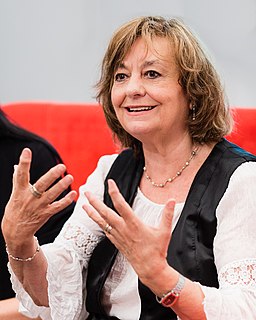 W
WAna Blandiana is a Romanian poet, essayist, and political figure. She is considered one of the famous contemporary Romanian authors. She took her name after Blandiana, near Vințu de Jos, Alba County, her mother's home village.
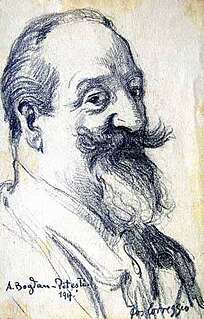 W
WAlexandru Bogdan-Pitești was a Romanian Symbolist poet, essayist, and art and literary critic, who was also known as a journalist and left-wing political agitator. A wealthy landowner, he invested his fortune in patronage and art collecting, becoming one of the main local promoters of modern art, and a sponsor of the Romanian Symbolist movement. Together with other Post-Impressionist and Symbolist cultural figures, Bogdan-Pitești established Societatea Ileana, which was one of the first Romanian associations dedicated to promoting the avant-garde and independent art. He was also noted for his friendship with the writers Joris-Karl Huysmans, Alexandru Macedonski, Tudor Arghezi and Mateiu Caragiale, as well as for sponsoring, among others, the painters Ștefan Luchian, Constantin Artachino and Nicolae Vermont. In addition to his literary and political activities, Alexandru Bogdan-Pitești was himself a painter and graphic artist.
 W
WJoseph B. Brociner was a Romanian Jewish jurist, activist, communal leader. He was active in the struggle for Jewish emancipation as President of the Union of Hebrew Congregations of Romania.
 W
WAugustin Bunea was an Austro-Hungarian ethnic Romanian historian and priest within the Romanian Greek-Catholic Church.
 W
WIon Horia Leonida Caramitru is a Romanian stage and film actor, stage director and political figure. He was Minister of Culture between 1996 and 2000, in the Romanian Democratic Convention (CDR) cabinets of Victor Ciorbea, Gavril Dejeu, Radu Vasile, Alexandru Athanasiu, and Mugur Isărescu. Is married with actress Micaela Caracaș and has three sons: Ștefan, Andrei, and Matei Caramitru.
 W
WBadea Cârțan was a self-taught ethnic Romanian shepherd who fought for the independence of the Romanians of Transylvania, distributing Romanian-language books that he secretly brought from Romania to their villages. In all he smuggled some 200,000 books for pupils, priests, teachers and peasants; he used several routes to pass through the Făgăraş Mountains.
 W
WGheorghe Ciuhandu was an Austro-Hungarian-born Romanian priest of the Romanian Orthodox Church, theologian, historian and advocate for ethnic Romanians' rights in Transylvania.
 W
WDimitrie Comșa was an Imperial Austrian-born Romanian agronomist and political activist.
 W
WMiron Constantinescu was a Romanian communist politician, a leading member of the Romanian Communist Party, as well as a Marxist sociologist, historian, academic, and journalist. Initially close to Communist Romania's leader Gheorghe Gheorghiu-Dej, he became increasingly critical of the latter's Stalinist policies during the 1950s, and was sidelined together with Iosif Chișinevschi. Reinstated under Nicolae Ceauşescu, he became a member of the Romanian Academy.
 W
WDoina Cornea was a Romanian human rights activist and French language professor. She was a dissident during the communist rule of Nicolae Ceaușescu.
 W
WNicolai Costenco was a writer from Moldova. He was managing editor of Viaţa Basarabiei (1934–1940) and was deported to Siberia în 1941.
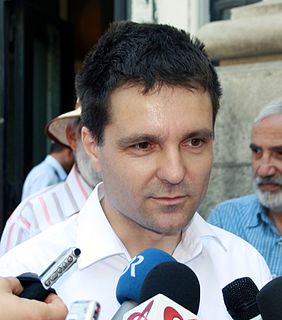 W
WNicușor Dan is a Romanian activist, mathematician, former member of the Chamber of Deputies of Romania, and former leader of the Save Romania Union (USR) political party. He is currently the incumbent Mayor of Bucharest.
 W
WNeagu Bunea Djuvara was a Romanian historian, essayist, philosopher, journalist, novelist, and diplomat.
 W
WIustin Ștefan Frățiman, also known as Frațman or Frățimanu, was a historian, educator, librarian and political figure from Bessarabia, active in the Russian Empire and the Kingdom of Romania. After receiving a classical education, he worked for various seminaries of the Russian Orthodox Church, moving as far north as Olonets. Frățiman had settled in Soroca by the time of World War I, becoming a champion of Romanian nationalism. This resulted in his being exiled to Central Asia until 1917. Allowed back home after the liberal February Revolution, he resumed his activism, openly campaigning for the national rights of Romanians east of Bessarabia. He was afterwards one of the educators tasked with institutional Romanianization by the Moldavian Democratic Republic.
 W
WGala Galaction was a Romanian Orthodox clergyman and theologian, writer, journalist, left-wing activist, as well as a political figure of the People's Republic of Romania. Contrary to the spirit of the time, he was a promoter of tolerance towards the Jewish minority.
 W
WDionisie Alexandru Ghermani was a professor, writer, philanthropist, and political activist.
Emil Isac was an Austro-Hungarian-born Romanian poet, dramatist, short story writer and critic. Noted as one of the pioneers of Symbolism and modernist literature in his native region of Transylvania, he was in tandem one of the leading young voices of the Symbolist movement in the neighboring Kingdom of Romania. Moving from prose poems with cosmopolitan traits, fusing Neo-romantic subjects with modernist free verse, he later created a lyrical discourse in the line of Social Realism. Isac was likewise known for criticizing traditionalist and nationalist trends in local literature, but, by the end of World War I, opened his own poetry to various traditionalist influences.
 W
WIoan Lazăr Kalinderu was a Wallachian, later Romanian jurist and confidant of King Carol I, who served for thirty years as the administrator of crown domains, and for three years as president of the Romanian Academy. Educated in France, he was the son of a rich and influential Greek-Romanian banker, Lazăr Kalenderoglu, and the brother of physician Nicolae Kalinderu. Like them, he was a sympathizer of the National Liberal Party, with which he debuted in politics in the 1880s.
 W
WVasile Mangra was an Austro-Hungarian cleric of the Romanian Orthodox Church and historian.
 W
WIoan Maniu was a Transylvanian Romanian lawyer, politician and journalist.
 W
WChristian Gheorghe Mititelu is a Romanian journalist. He was the director of Romanian department of the BBC.
 W
WIoan T. Morar is a Romanian journalist, poet, dramatist, novelist, literary and art critic, diplomat and civil society activist. He is a founding member of the satirical magazine Academia Caţavencu and, since 2004, a senior editor for Cotidianul. An amateur actor in his youth, he was also a member of the comedy troupe Divertis from the mid-1980s to 1996.
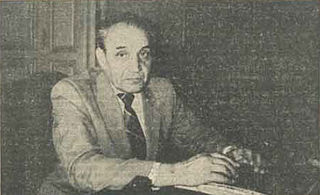 W
WVasile Paraschiv was a Romanian social and political activist.
 W
WOvidiu Coriolan Pecican is a Romanian historian, essayist, novelist, short-story writer, literary critic, poet, playwright, and journalist of partly Serbian origin. He is especially known for his political writings on disputed issues such as regional autonomy for Transylvania, and for his co-authorship of a controversial history textbook for 11th and 12th grade high-school students.
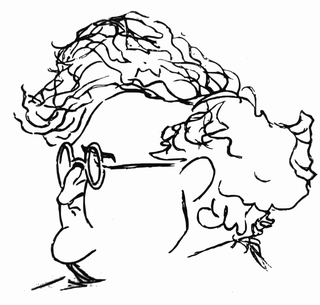 W
WPerpessicius was a Romanian literary historian and critic, poet, essayist and fiction writer. One of the prominent literary chroniclers of the Romanian interwar, he stood apart in his generation for having thrown his support behind the modernist and avant-garde currents of Romanian literature. As a theorist, Perpessicius merged the tenets of Symbolism with the pragmatic conservative principles of the 19th century Junimea society, but was much-criticized over perceptions that, in the name of aesthetic relativism, he tolerated literary failure. Also known as an anthologist, biographer, museologist, folklorist and book publisher, he was, together with George Călinescu, one of his generation's best-known researchers to have focused on the work of Junimist author and since-acknowledged national poet Mihai Eminescu. Much of Perpessicius' career was dedicated to collecting, structuring and interpreting Eminescu's texts, resulting in an authoritative edition of Eminescu's writings, the 17-volume Opere ("Works").
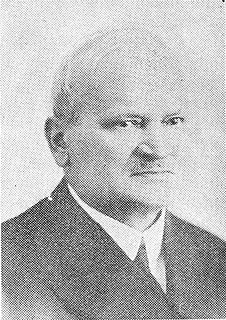 W
WȘtefan Cicio Pop was a Romanian politician.
 W
WStelian Popescu was a nationalist Romanian journalist.
 W
WDaniil Popovici-Barcianu was an Austro-Hungarian ethnic Romanian teacher, naturalist and political activist.
 W
WChristian Georgievich Rakovsky was a Bulgarian-born socialist revolutionary, a Bolshevik politician and Soviet diplomat and statesman; he was also noted as a journalist, physician, and essayist. Rakovsky's political career took him throughout the Balkans and into France and Imperial Russia; for part of his life, he was also a Romanian citizen.
 W
WFather Alexander Ratiu was a Romanian-American priest of the Romanian Greek-Catholic Church. While serving in his family's country of origin, he became a political prisoner, and later, after his release, an author.
 W
WVictor Rebengiuc is a Romanian film and stage actor, also known as a civil society activist.
 W
WMihail Sadoveanu was a Romanian novelist, short story writer, journalist and political figure, who twice served as acting head of state for the communist republic. One of the most prolific Romanian-language writers, he is remembered mostly for his historical and adventure novels, as well as for his nature writing. An author whose career spanned five decades, Sadoveanu was an early associate of the traditionalist magazine Sămănătorul, before becoming known as a Realist writer and an adherent to the Poporanist current represented by Viața Românească journal. His books, critically acclaimed for their vision of age-old solitude and natural abundance, are generally set in the historical region of Moldavia, building on themes from Romania's medieval and early modern history. Among them are Neamul Șoimăreștilor, Frații Jderi and Zodia Cancerului. With Venea o moară pe Siret..., Baltagul and some other works of fiction, Sadoveanu extends his fresco to contemporary history and adapts his style to the psychological novel, Naturalism and Social realism.
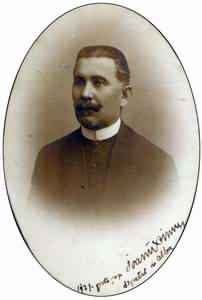 W
WIoan Simu was an Austro-Hungarian-born Romanian Greek-Catholic priest and politician.
 W
WValerian Stan is a Romanian publicist, civic and human rights activist, dignitary, lawyer, and military officer.
 W
WConstantin G. Stere or Constantin Sterea was a Romanian writer, jurist, politician, ideologue of the Poporanist trend, and, in March 1906, co-founder of the literary magazine Viața Românească. One of the central figures of the Bessarabian intelligentsia at the time, Stere was a key actor during the Union of Bessarabia with Romania in 1918, and is associated with its legacy.
 W
WV. A. Urechia was a Moldavian, later Romanian historian, Romantic author of historical fiction and plays, academic and politician. The author of Romanian history syntheses, a noted bibliographer, heraldist, ethnographer and folklorist, he founded and managed a private school, later holding teaching positions at the University of Iaşi and University of Bucharest. Urechia was also one of the founding members of the Romanian Academy and, as frequent traveler to Spain and fluent speaker of Spanish, a corresponding member of the Royal Spanish Academy. He was the father of satirist Alceu Urechia.
 W
WAdina-Ioana Vălean is a Romanian politician who has been serving as European Commissioner for Transport under the leadership of President of the European Commission Ursula von der Leyen since 2019. She previously served as a Member of the European Parliament from 2007 until 2019, where she chaired of the European Parliament Committee on Industry, Research and Energy in 2019.